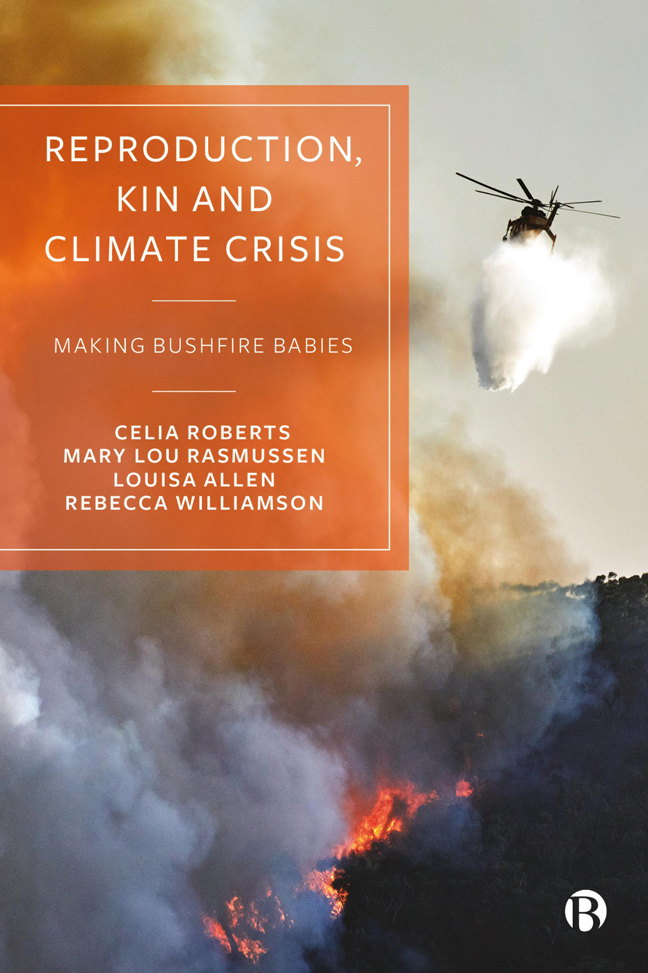Book contents
- Frontmatter
- Contents
- List of Figures and Table
- Notes on the Figures
- Notes on the Authors
- Acknowledgements
- Interleave 1
- 1 Reproducing in Climate Crisis
- Interleave 2
- 2 Methods in Crisis
- Interleave 3
- 3 Breath, Breathing and ‘Mum-Guilt’
- Interleave 4
- 4 Smoke, Machines and Public Health
- Interleave 5
- 5 Kin, Care and Crises
- Interleave 6
- 6 Pyro-reproductive Futures
- Interleave 7
- 7 Making Bushfire Babies
- Notes
- References
- Index
Interleave 4
Published online by Cambridge University Press: 24 January 2024
- Frontmatter
- Contents
- List of Figures and Table
- Notes on the Figures
- Notes on the Authors
- Acknowledgements
- Interleave 1
- 1 Reproducing in Climate Crisis
- Interleave 2
- 2 Methods in Crisis
- Interleave 3
- 3 Breath, Breathing and ‘Mum-Guilt’
- Interleave 4
- 4 Smoke, Machines and Public Health
- Interleave 5
- 5 Kin, Care and Crises
- Interleave 6
- 6 Pyro-reproductive Futures
- Interleave 7
- 7 Making Bushfire Babies
- Notes
- References
- Index
Summary
“We both really love data”: Shalev NessAiver's story (interview transcript)
So it was probably around November, I think, when it started to get bad, and I’d been doing a lot of research into just baby health and development [during] the whole pregnancy. You know, we both really love data information and, you know, we’re science-oriented. So when this started happening, I did all the research. I looked around and I read a bunch of papers, and put together a picture. And I was pretty worried because there's quite a lot that could happen.
So I began to see there was a pattern, right? It became fairly clear that if you figured out where the fires were and where the winds were blowing, you could tell when it was going to be really bad. So … in the morning I started doing that and I would just message her or tell her in the morning: “Okay, today, like, you’ve got to be really careful, don't go outside in the middle of the day. Here are the times when it's probably going to be better.” You’d start to see repeating wind patterns where over one period of time when the temperature dipped, it would blow in and then another one would come from a different direction and clear it out. So I was able to kind of give her a little sense of, like, you know, “in these couple of hours, that's when you should go outside. Everything else is probably going to be bad, but we should go shopping right now”.
And then I realized, well, look, there's a lot of people here, and I’m sure other people could benefit from this. So I just – I tried to do the simplest possible thing I could do, which was to provide information … I do a lot of web development, so I just made, like, a little mini webpage, and then took pictures of that. Since I was already doing it for her, I just put it on a Twitter account and started publishing that. As the months rolled on, the wind patterns changed and more fires sprung up. So it was less useful to say, like, “Here's what's going to happen”, because all I could really say is “It's probably going to be smoky all the time”.
- Type
- Chapter
- Information
- Reproduction, Kin and Climate CrisisMaking Bushfire Babies, pp. 75 - 78Publisher: Bristol University PressPrint publication year: 2023



